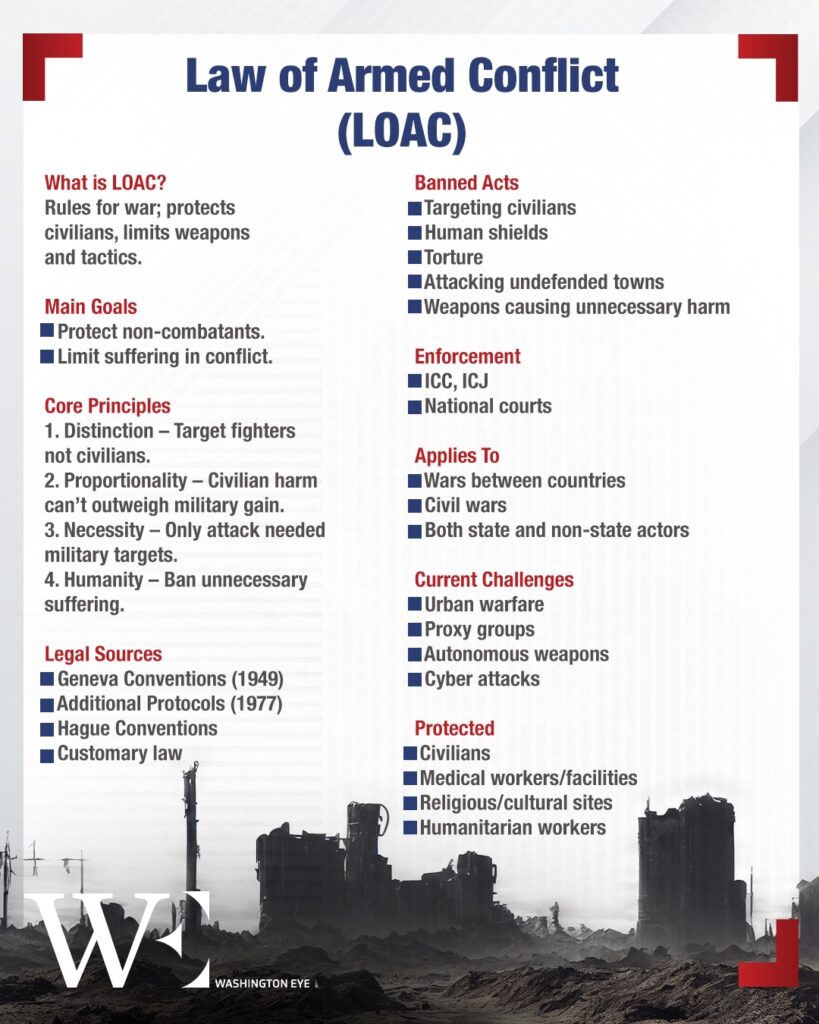The missile that screamed out of Yemen’s skies and landed near Ben Gurion Airport wasn’t just another projectile in an endless regional conflict. It was a message.
On the night of May 4, 2025, the Houthis, proudly claiming responsibility, managed to do what few thought possible: penetrate Israel’s much-vaunted air defences and strike within miles of Tel Aviv’s international airport. Six people were injured. Flights were grounded. A nation rattled.
In response, Prime Minister Benjamin Netanyahu thundered about vengeance. Defence Minister Israel Katz promised that Israel would strike back “sevenfold.” The Israeli press speculated whether Iranian facilities were now on the target list, not just the Houthi missile pads in northern Yemen. The Americans, while supportive of Israel’s right to self-defence, quietly counselled restraint behind the scenes.
Yet in the hours and days that followed, Israel’s response went from rhetoric to reality. Early this morning, Israeli fighter jets launched airstrikes on targets in Yemen’s capital, Sana’a, including military installations and suspected missile launch sites linked to the Houthis. According to reports from Washington Post and JNS, the strikes specifically hit facilities near Sana’a International Airport, prompting the Israel Defense Forces (IDF) to issue an unprecedented warning: civilians should evacuate the airport and surrounding areas immediately. Satellite images confirmed damage to the airport’s runway and adjacent warehouses.
The airstrikes marked yet again, another Israel military operation on Yemeni soil in this conflict—an escalation that could redraw the regional map of retaliation. The Israeli military framed the strikes as a necessary pre-emptive measure to dismantle the Houthis’ long-range missile capabilities, claiming the airport had been “co-opted into military use” by the Houthis. Houthi media, however, accused Israel of targeting civilian infrastructure and vowed to continue operations against Israel in solidarity with Gaza.
But beneath the noise and fury, one question looms: what does the law—specifically the Law of Armed Conflict—allow Israel to do? And more importantly, what does it mean if Israel decides to “mow the lawn” in Yemen or even strike Iranian soil?
A War Crime in Plain Sight?
Let’s start with the obvious: the Houthis violated international law. By targeting Ben Gurion Airport—a civilian facility handling international passengers, commerce, and humanitarian flights—they crossed a clear line under the Geneva Conventions. Civilians and civilian infrastructure enjoy explicit protection in armed conflict. Unless the airport had been turned into a military installation (and there’s zero evidence it had), the Houthis attacked a non-military target.
This wasn’t a stray rocket. This was a deliberate message dressed up as solidarity with Palestinians in Gaza. “We are with you,” the Houthi spokesman declared, claiming their missiles would keep flying until Israel halted operations in Gaza. But no matter the political cause, no matter the solidarity slogans, targeting civilians is unlawful under international humanitarian law. The Houthis have a long record of such attacks, from Saudi airports to UAE oil facilities, but hitting Israel’s main airport escalates their reach—and their legal culpability.
Israel’s Right to Hit Back—But How Hard?
Here’s where it gets tricky. Under Article 51 of the UN Charter, Israel has the inherent right to self-defence after an armed attack. International law doesn’t require it to sit still and wait for the next missile. Targeting Houthi missile launchers, command centres, or drone workshops inside Yemen is a legitimate military response—provided Israel adheres to the principles of distinction, proportionality, and necessity.
By striking the vicinity of Sana’a International Airport, Israel is treading a fine legal line. The IDF argued that the airport was being used for military purposes, turning it into a dual-use target under international law. But the requirement of proportionality remains: civilian harm must not be excessive in relation to the direct military advantage anticipated. Any failure to distinguish military from civilian objects risks transforming a lawful target into a war crime.
Today’s strikes have already drawn concern from international monitors, especially given the IDF’s sweeping evacuation notice—interpreted by some as a sign that broader military operations may follow. Humanitarian organisations warned that displacing civilians around a functioning airport, even under the claim of military necessity, could disrupt aid flows and violate civilian protections under international law.
Beyond Yemen: Tehran in the Crosshairs?
What happens if Israel looks north, to Tehran, and decides to punish the patron as well as the proxy? Here the legal ground starts to shift. Under international law, a state can only target another state if that state was directly involved in the attack or exercising “effective control” over the attackers.
Can Israel prove that Iran ordered or directly coordinated the May 4 attack? Intelligence officials will argue the Houthis couldn’t have developed such missile capabilities without Iranian technical aid, parts, or training. But proving operational control is a much higher bar than showing financial or logistical support. Without such proof, a direct Israeli strike on Iranian territory risks being labelled an act of aggression—illegal under Article 2(4) of the UN Charter.
Iran, for its part, has swiftly denied any involvement. The Iranian Foreign Ministry rejected Israel’s accusations as “baseless” and insisted that the Houthis act independently, guided by their “own will and resistance against aggression.” Iran’s narrative casts the Houthis as an autonomous actor rather than a puppet on Tehran’s string—a framing designed to insulate Iran from legal consequences while continuing its broader support.
In simpler terms: if Israel bombs Iranian soil without clear evidence Iran pulled the trigger, it risks breaking the very legal norms it accuses its enemies of violating.
“Mowing the Lawn” in Yemen: Escalation with Limits
Some Israeli analysts are already floating the phrase “mowing the lawn”—a euphemism for periodic military campaigns to degrade an enemy’s capacity without eliminating it. It’s a tactic Israel has used for years in Gaza. But applying it to Yemen isn’t a simple transplant.
Yemen isn’t next door. It’s over 1,340 miles from Tel Aviv to Sana’a—a distance far beyond the typical operational range of Israel’s fighter jets without refuelling or overflight permissions. Yemen’s airspace is contested. Saudi Arabia, while hostile to the Houthis, is wary of being dragged deeper into a regional firestorm. And every strike risks civilian casualties in a country already wrecked by a decade of war and famine.
Legally, each bomb Israel drops must satisfy proportionality and distinction. Strike a weapons cache hidden under a school, and even if the target is lawful, the collateral damage could violate international law. Israel’s lawyers and commanders know this calculus. But in the heat of retaliation, such precision is easier demanded than achieved.
And if “mowing the lawn” turns into an open-ended campaign against the Houthis, Israel risks stepping into the same quagmire that ensnared Saudi Arabia and the UAE for years—with little to show for it beyond international criticism and mounting civilian harm.
The Iran Temptation—and the Wider War Trap
The more provocative question is whether Israel seizes this moment to widen the fight. Netanyahu’s rhetoric wasn’t limited to Yemen; he pointed directly at Tehran. The temptation to use the Houthi strike as a pretext for hitting Iranian nuclear or missile facilities will be strong, especially with hawks in his cabinet urging a bold response.
But the risks are staggering. Iran won’t sit quietly if its soil is bombed. Hezbollah could open a northern front. Iranian militias in Syria and Iraq could rain down rockets. American troops in the region could be dragged into the crossfire.
And the law? Unless Israel can show that Iran directed the May 4 attack, a pre-emptive or retaliatory strike on Iranian territory stands on shaky legal ground. Israel may argue anticipatory self-defence. But absent a clear, imminent threat, the world will likely view such a strike as aggression, not lawful defence.
A Dangerous Precedent
In the end, the Houthi missile wasn’t just a piece of war hardware—it was a test of Israel’s resolve, of international norms, and of how law functions in an era of proxy warfare.
Israel’s legal right to defend itself is unquestionable. But the methods it chooses in the days ahead could set a precedent—for better or worse. In a Middle East where missiles cross 1,340 miles from Sana’a to Tel Aviv, and where proxies fire from safe harbours, the lines between state and non-state actors, between battlefield and civilian space, are blurring fast.
For Israel, the hardest challenge isn’t launching a strike. It’s choosing one that answers the missile without breaking the very laws it claims to defend.
Anything less risks joining the company of those it condemns

















